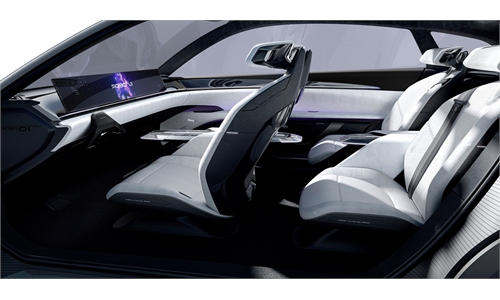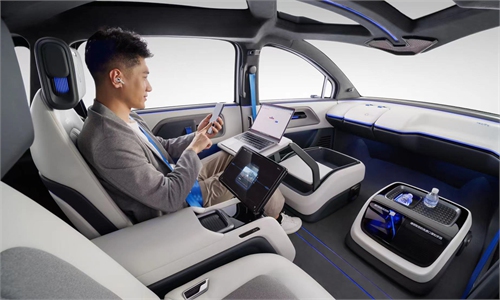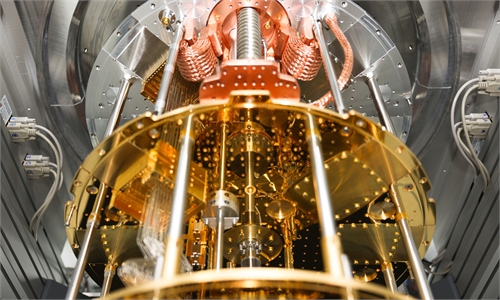Apollo cumulative contracts reached $1.6b, highlighting robust development of automated driving

Zhang Yaqin, president of Baidu Inc, introduces Baidu's Apollo Autonomous Driving Vehicle and Platform during the World Leading Internet Scientific and Technological Achievements of the 5th World Internet Conference, in Wuzhen town, East China's Zhejiang Province, on November 7, 2018. Photo: IC
Apollo Go continued to progress rapidly and remained the largest autonomous ride-hailing service provider worldwide, Chinese tech giant Baidu said on Tuesday, highlighting the robust development of China's automated driving technology.
Apollo Go provided more than 474,000 rides in the third quarter of 2022, up 311 percent year-over year and 65 percent quarter-over-quarter, Baidu said in its financial report, adding that the cumulative rides provided to the public by Apollo Go reached 1.4 million by the third quarter of 2022.
Baidu said market demand for Baidu Apollo's automotive intelligent solutions is increasing, and its cumulative contracts reached 11.4 billion yuan ($1.6 billion) recently.
The remarks came after Baidu reported its total revenues of 32.5 billion yuan, an increase of 2 percent year-over-year, and non-GAAP net income attributable to Baidu was 5.9 billion yuan, increasing 16 percent year-over-year.
"Looking ahead, we expect our mobile ecosystem to continue generating strong cash flow and fund our investment in AI Cloud and intelligent driving, which will help maintain our leadership in the new AI business and drive long term business growth," said Robin Li, co-founder and CEO of Baidu.
Like Baidu, many autonomous driving companies in China have been striving to advance the technology and accelerate its commercialization.
On Monday, Pony.ai and Baidu were granted permission by the Beijing government to open the unmanned test qualification of autonomous driving with "no one in the front row and people in the back row". The industry believes that this is the transitional stage of advancing the Robotaxi industry toward "no one in the car."
Companies are busy building the ecosystem of smart driving. For auto companies, Tencent mainly provides core capabilities such as cloud, and is committed to being a co-builder of the new ecology of the smart travel industry, Zhong Xiangping, who is responsible for Tencent smart transportation and mobility, told the Global Times on Thursday.
Tencent automotive intelligence has cumulatively equipped more than 7 million vehicles, landing more than 150 models.
In terms of autonomous driving, Tencent helped BMW China Automotive Trading build a high-performance data-driven development platform, and Tencent and GAC Group have jointly built an intelligent networked cloud platform to provide high-performance and stable cloud services for GAC's intelligent networked vehicles.
Thanks to continuous technology innovation and policy support, China has made steady strides in autonomous driving, from running trials in semi-closed areas to venturing onto open roads, as the market potential of this technology continues to grow in the country.
In February 2020, the National Development and Reform Commission and other government departments jointly issued a guideline to promote the innovation and development of intelligent vehicles. Authorities in several major Chinese cities later followed suit.
In 2019, the provincial capital Guangzhou took the lead in the country in permitting road tests for autonomous driving. Now, the city's self-driving distance has reached 2.55 million kilometers, according to Xinhua News Agency.
Shanghai said recently that it has opened the first batch of self-driving expressways, including 21.5 kilometers of the G1503 expressway and 19.5 kilometers of the G2 Beijing-Shanghai Expressway, showing progress in automatic driving test in the high-traffic highway.
Shanghai has opened a total of 926 autonomous driving test roads, with 15,000 measurable scenarios, which can support automatic driving for commercial operation. In the future, Shanghai will continue to accelerate the construction of smart highways, and further promote the test of cross-regional linkage highways in the Yangtze River Delta.
Global Times



